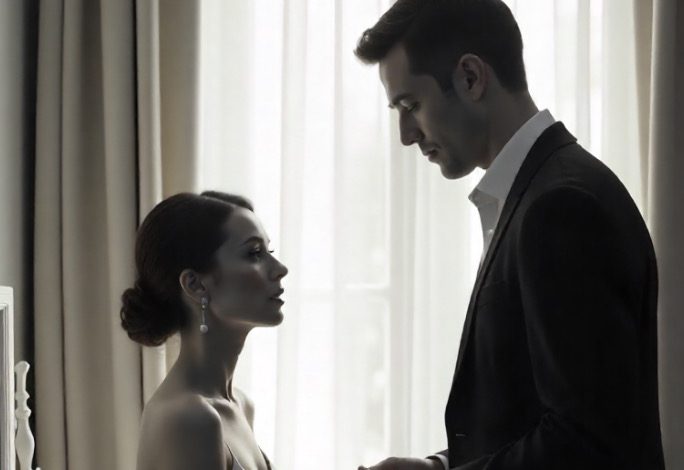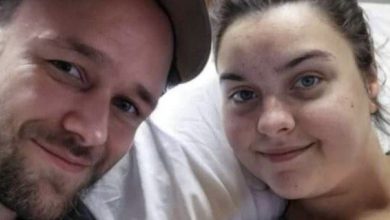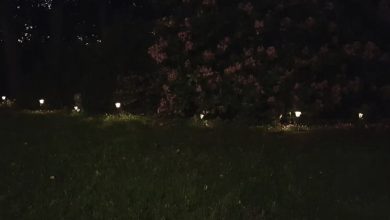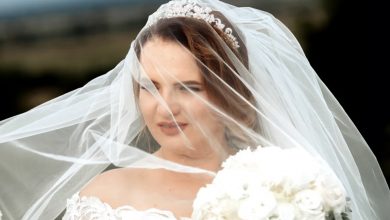“She Called My Mother’s Dress ‘Clutter’ and Threw It Away. My Dad’s Response Proved What Real Love Looks Like”

I always dreamed of walking down the aisle wearing my mother’s wedding dress — the same one she wore when she married my father. To me, that gown wasn’t just fabric; it was the last piece of her I still had.
My mother, Claire, passed away when I was only eleven. She was soft-spoken but strong, a woman who filled every room with calm and light. I still remember her humming through thunderstorms, brushing my hair at night, and sewing little daisy patches onto my clothes because, as she said, “You remind me of sunshine, Anna.”
When cancer took her, everything changed. The world felt quieter, smaller. For months, the only thing that made me feel close to her was that gown — carefully folded in a white box, still carrying the faint smell of lavender sachets she always used in her closet.
That box became my most precious belonging. I guarded it through every stage of my life. I brought it to college. I brought it home when I couldn’t afford rent. Wherever I went, it came with me.
Three years after Mom passed, Dad remarried. I wanted to be happy for him — he deserved companionship after all the years of grief. But when I met Sharon, I knew instantly she wasn’t interested in joining a family. She wanted to reshape one.
Sharon was the kind of woman who turned heads — sleek hair, manicured nails, a perfect smile that never reached her eyes. She was charming in public, but at home, her kindness always came with conditions.
She didn’t like being reminded that she wasn’t my real mother. And yet, she’d often sigh and say things like, “Well, I wouldn’t expect you to understand — you didn’t grow up with a mother figure.”
When I got engaged to Daniel, my high school sweetheart, one of the first things I told Dad was that I wanted to wear Mom’s dress. His eyes softened immediately. “She’d love that, sweetheart,” he said.
But Sharon, standing behind him pretending to wipe the counter, gave a tight smile. “You know,” she said lightly, “fashion has changed a lot since then. I’m sure your mother’s dress is sentimental, but wouldn’t you rather wear something new? Something that feels like you?”
“It is me,” I replied quietly. “She was my mother.”
That conversation never really ended. Over the next few weeks, Sharon dropped little hints here and there. “Old lace doesn’t photograph well,” she’d say. Or, “Tradition is lovely, but sometimes it’s nice to start your own.”
Dad told me to ignore her. “She just wants to be included,” he said. But I knew better. There was jealousy in Sharon’s voice every time my mother’s name came up — a jealousy that ran deep.
As the wedding day got closer, her comments became sharper. But I didn’t let her ruin my excitement. The ceremony was going to take place in the backyard of my childhood home, under the big oak tree where my mother used to read on summer days. That’s where I wanted to say my vows — where she’d still feel close.
The night before the wedding, I couldn’t sleep. I walked into my old room and looked at the dress hanging by the window, glowing softly in the moonlight. I traced my fingers over the lace sleeves and whispered, “Thank you, Mom.”
When morning came, the house was buzzing with laughter, perfume, and music. My bridesmaids were getting ready, the florist was outside arranging flowers, and the caterers were setting up under the tent. Everything felt perfect.
Then Sharon walked in.
She was wearing an elegant cream-colored dress — far too close to white — and her smile was the kind that hides a knife behind it. “You’re really wearing that old thing?” she asked, raising an eyebrow.
“Yes,” I said, keeping my tone calm.
“Well,” she said, glancing around, “I hope it looks okay in daylight. Vintage fabric can be… tricky.”
I turned back to the mirror and ignored her. My hair stylist started curling my hair again, and for a while, I managed to forget about Sharon entirely.
Then, around noon, my maid of honor, Lila, went upstairs to fetch the dress. She came back pale, her hands shaking slightly.
“Anna…” she whispered. “It’s gone.”
“What?” I asked.
“The dress. It’s not in your room. The hanger’s empty.”
My heart started racing. “That’s impossible,” I said, rushing upstairs. I flung open the closet door. Empty. The garment bag that had been zipped shut the night before was wide open. My chest tightened as panic rose inside me.
I tore through the guest room, the hallway, even the laundry room. Nothing.
Then Sharon appeared in the doorway, her voice syrupy sweet. “What’s going on?”
“My mother’s wedding dress is missing,” I said, my voice trembling.
She tilted her head. “Oh? You mean that old box in the closet? I thought that was clutter. I told the housekeeper to get rid of it with the rest of the donations this morning.”
The room started spinning. “You what?” I managed to say.
Sharon sighed dramatically. “Darling, I didn’t realize you were still attached to that antique. Honestly, it looked like something that belongs in a museum, not a wedding. Don’t worry — the dress I bought for you is much more flattering. It’s in my room, perfectly steamed.”
Her tone was so casual it made my stomach turn.
“You threw away my mother’s dress?” I said quietly, my voice breaking.
She gave a tiny shrug. “Sweetheart, you’ll thank me later.”
I walked out without another word. Downstairs, I found Dad speaking with the officiant on the porch. I told him everything in one breath, barely holding back tears.
For a second, he didn’t react. Then I saw something shift in his eyes — a cold fury I hadn’t seen in years.
He didn’t yell. He didn’t comfort me. He just turned and went inside.
The next few minutes were a blur of muffled shouting. Sharon’s voice rose — defensive, shrill — while my father’s remained low and sharp. I caught fragments of their argument: “ungrateful,” “disrespect,” “how could you?”
Then there was silence.
A moment later, Dad walked out of the house, grabbed his car keys, and said, “Wait here.”
He was gone for nearly two hours. Guests started arriving, music played softly in the background, and I sat frozen in my chair, staring at the empty space where my mother’s gown should have been.
Just when I had lost hope, Dad’s truck pulled up.
He stepped out, his shirt stained with dirt, his eyes wet, carrying a large plastic bin. Inside was my mother’s wedding dress.
“I found it,” he said, his voice shaking.
I covered my mouth with my hands. “How?”
He explained that he had rushed to the donation center, where workers remembered the “beautiful old gown” that had been dropped off that morning. They directed him to a volunteer — Mrs. Caldwell, our neighbor — who had taken it for the thrift shop. She recognized the dress instantly. She’d seen my mom wear it decades ago. She gave it back without hesitation.
The gown was a little dirty and torn at the hem, but it was safe.
Dad handed it to me gently. “Your mom would never forgive me if I didn’t bring this back to you,” he said.
I broke down crying and threw my arms around him.
My bridesmaids and I spent the next hour cleaning and sewing the dress by hand. We worked carefully, fixing every loose thread and smoothing every wrinkle. When I finally put it on, it fit like it had been made for me.
When I walked down the aisle under the old oak tree, sunlight streaming through the branches, I could almost feel my mother’s presence — her scent, her warmth, her love. My father stood beside me, his hand steady on mine.
And Sharon?
She sat in the second row, pale and silent. Her face was tight, her lips pressed thin, and for once, she had nothing to say.
After the ceremony, my father pulled me aside. “She’s leaving for a while,” he said quietly. “She needs time to think about what family really means.”
I didn’t ask for details. Whatever happened between them, I knew it was serious. Sharon packed her bags that same night and moved in with her sister.
In the weeks that followed, she called several times — her messages full of empty apologies and offers to “make things right.” But some things can’t be replaced.
Dad and I grew closer after that. We started talking more about Mom — not just about her death, but about her life. The small things. The songs she used to hum, the way she’d dance while cooking, the sound of her laughter.
One evening, a few months later, I framed a wedding photo — the one where Dad and I are standing together under the oak tree. The sunlight is hitting the lace of my mother’s dress, and Dad is smiling in a way I hadn’t seen in years. I hung the picture in the living room, right where my mother’s portrait once was.
Dad looked at it for a long time. “Do you think she’d approve?” he asked with a small grin.
I smiled. “She already does.”
What should have been the worst day of my life — losing my mother’s dress — turned into something else entirely. It became a reminder. That love doesn’t fade just because people try to erase it.
It stays — in old lace, in oak trees, in the smell of lavender, and in the people who fight to protect it.
Sharon never came back to live with us again. But I didn’t hate her. I just understood something: some people destroy what they can’t understand. Others rebuild it, piece by piece, until love stands taller than loss.
That’s what my wedding day became — not a story of revenge, not a tragedy, but a promise. That what’s meant to last will always find its way back.
And every time I open my closet now, the faint scent of lavender still lingers on that dress. It feels like my mother whispering, See? I never really left.










